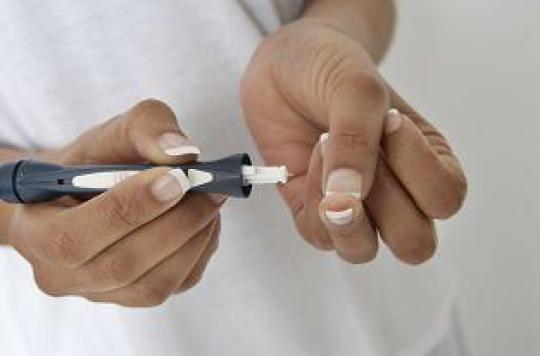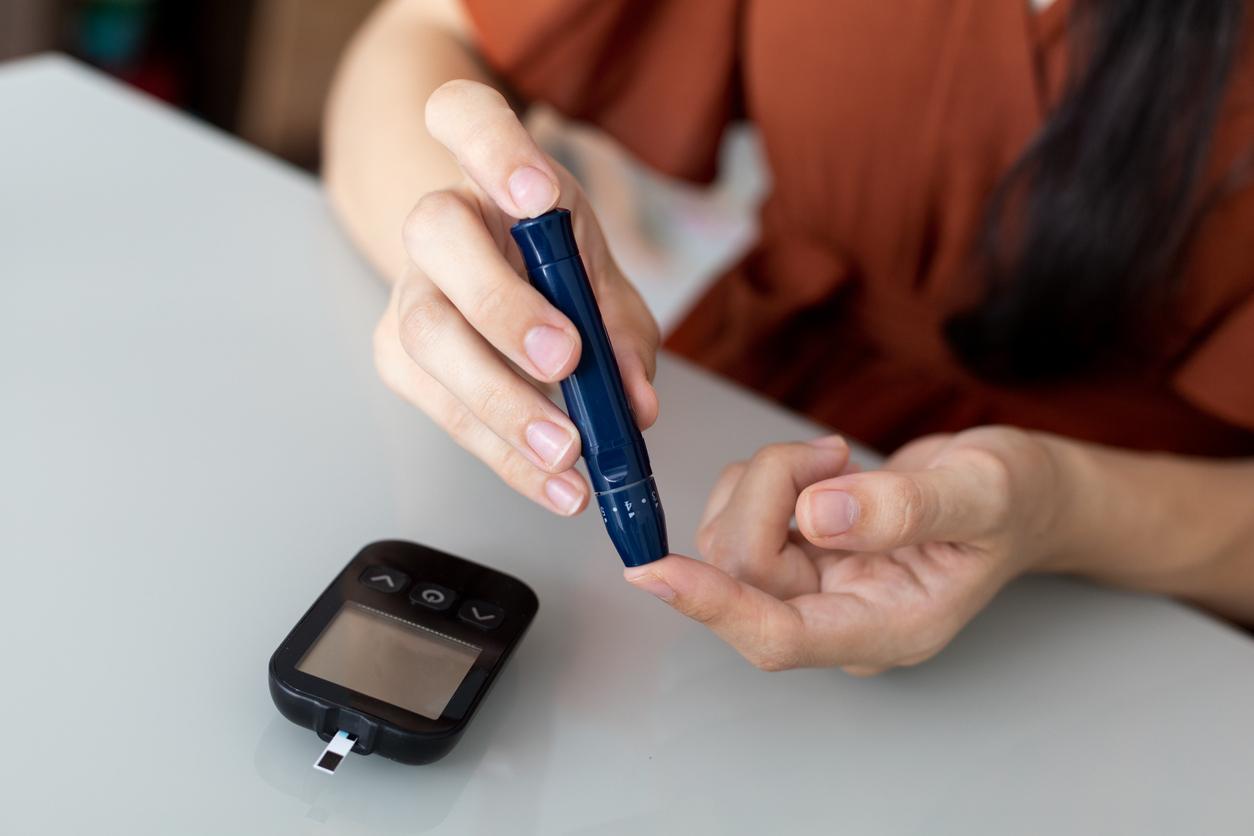With the Sophia program, the Health Insurance offers support to diabetics, to help them live better and prevent complications. 25% of the patients concerned adhere to it.

As every year, World Diabetes Day which takes place on November 14 is an opportunity to take stock of this disease which affects more than 3 million people in France. As such, the Health Insurance recalls this Tuesday that diabetes is experiencing one of the most significant progressions among chronic diseases (1). As a result, the disease remains, in terms of numbers, the first of the long-term affections, ahead of cancer. It represents € 7.5 billion in health spending each year. So, to respond to this major public health issue, the Health Insurance has developed the Sophia service, which offers personalized support to patients. The challenge of this program is twofold: to improve the quality of life of patients and reduce costs due to complications.
460,000 French diabetics are followed
The Sophia service offers personalized support to diabetic patients to enable them to better understand their disease and its complications, and to adapt their lifestyle. Concretely, the service offers these patient members the support of a health nurse-advisor. The latter is specially trained to support chronically ill patients. He listens to patients to provide them with support and advice tailored to their state of health and their needs. It encourages them to put official recommendations into practice (diet, physical activity, tobacco, follow-up exams, etc.). In practice, patients are contacted by telephone.
In addition, the program provides for the regular sending to patients of disease information booklets and journals. Finally, an information space on diabetes is accessible to all patients in their “member” space on www.ameli-sophia.fr. This broad base of information on diabetes allows them to deepen their knowledge and better understand the disease.
After an experiment in 19 departments, the Sophia service was extended to the whole of France at the start of 2013. The results drawn up, less than a year after this generalization, are positive: today, there are more than 460,000 people. diabetics in France who benefit from it. Conclusion, of the 1.9 million people concerned, nearly 1 in 4 chose to join.
Encouraging first results
A first assessment of the Health Insurance on the Sophia program from 2008 to 2011 shows an improvement in the condition of diabetic patients on almost all of the disease indicators: + 5.6 points for the three doses of glycated hemoglobin (HbA1c) recommended during the year, + 7.6 points for carrying out an electrocardiogram or consultation with a cardiologist, + 3 points for having recourse to an ophthalmological consultation.
In addition, after adjusting the data, the probability that Sophia members will make an ophthalmic visit is 1.45 times higher than in the general population. It is also 1.3 times higher for carrying out an electrocardiogram, or a visit to a cardiologist.
Less healthcare costs for members
The beneficial effects of Sophia also extend to the consumption of healthcare: the members’ expenditure on city healthcare is indeed lower than that of the control group. In detail, it appears that program members have higher expenses than the control population in terms of consultations and medical procedures (+40 euros), but their paramedical expenses are lower (- 89 euros).
Regarding hospital expenses, they are also lower in the adherent population than in the control population, all hospitalizations combined. The probability of being hospitalized for diabetes, with comparable profiles, is 11% lower in the Sophia population compared to the control population.
Finally, over the three years observed, the outpatient and hospital expenses of members of this program are 226 euros lower than those of control patients: 54 euros for the outpatient post, and 172 euros for the hospital post.
Sophia cost too much?
Since the implementation of this program, some health professionals have questioned its cost / effectiveness ratio. The program was evaluated at 20 million euros for 130,000 patients. Too expensive ? To this question, Frédéric Van Roeckeghem, Director General of Health Insurance recently replied in the negative: “In 2011, the program cost 116 euros per member, 127 euros in 2012, and it should cost 93 euros in 2013. We expect on a cost per member of 69 euros in 2014. The Sophia program will reach equilibrium when it costs 55 euros per member ”, he added. And the latter concludes by worrying that, “the savings will be measured in the long term. “
Finally, the last criticism against Sophia formulated by the CISS, that of the filing. With this program, the Health Insurance can indeed establish patient files to offer public health programs. Patient associations fear that this will encourage sickness insurance to adjust reimbursements according to the level of membership in the Sophia program …
(1) 2011 data – Number of people treated for diabetes – “Improving the quality of the health system and controlling expenditure: proposals from the Health Insurance for 2014”
.

















